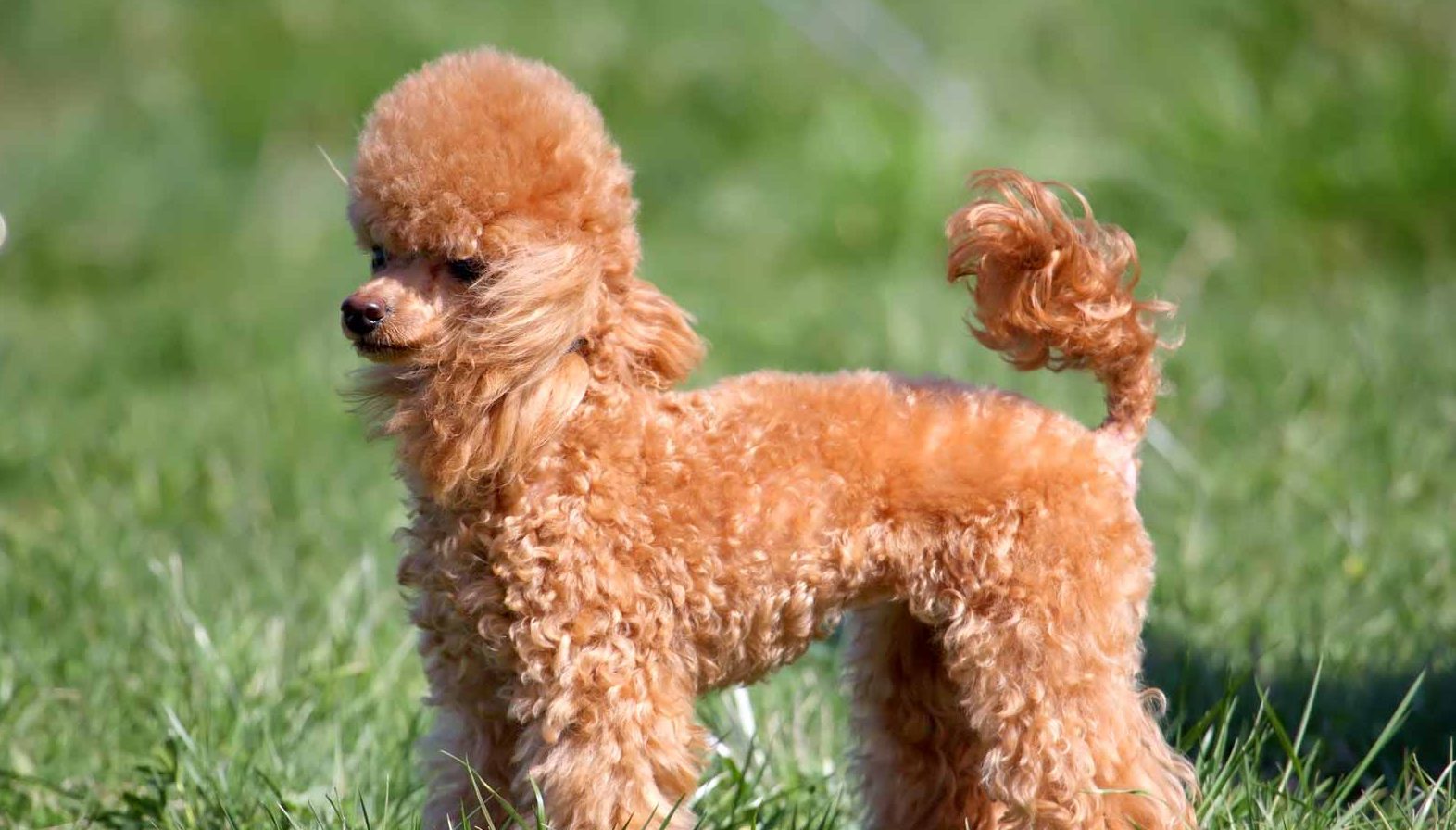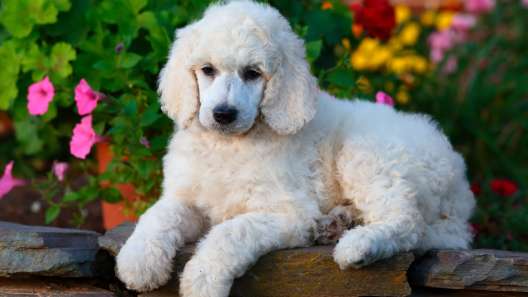-
Activity Level:
high
-
Shedding Level:
low
-
Grooming Level:
high
-
Trainability:
high
-
Good for Novice Owners:
high
-
Adaptability:
high
-
Kid/Pet Friendly:
often
-
Prey Drive:
moderate
-
Watchdog:
aware
- Average Size: Small
- Average Lifespan: 10-18 years
- Registered?: aca, akc
Miniature Poodle Dog Breed Information
Overview
Temperament
Adaptability
Health
Owner Experience
Grooming
Activity Level
Size
Life Span
Did You Know?
The Poodle is one of the oldest dog breeds and was originally developed in Germany to hunt waterfowl. The Poodle may have originated in Germany, but they are much-loved by the French. So much so that the Poodle is the national dog of France.
The Miniature Poodle is slightly more recent. Breeders weren’t intentionally producing these smaller versions of the Standard Poodle until the 1400s. This Mini version likely originated in France. The AKC recognized the Standard and Miniature Poodle in 1887 as part of the Non-Sporting Group.
The Mini Poodle has all of the same characteristics as a Standard Poodle; they just come in a smaller package. With all of the personality and affection that Poodles are known for, it’s no wonder that Miniature Poodles are one of the most popular dog breeds.
The Miniature Poodle is one of the smartest dog breeds. On top of their intelligence, they are also known to have a cheerful disposition and a sensitive nature. They get along great with children. Due to their small size, they can be easily injured by rough play or accidental falls that can happen with younger children.
Because of this, they may be better suited to a home with older children. Younger children should be fine as long as they are taught how to properly interact with a small dog and interactions between young kids and puppies are closely supervised.
Although they are considered part of the Non-Sporting Group, some facts about Miniature Poodles are that they are versatile and athletic dogs that are also quite playful. Provided they are well-socialized, they get along well with other dogs and tend to do well with strangers.
They do tend to be protective of their home and can be suspicious of strangers coming up on the property. They are known to bark to alert you of strangers coming to the house. This makes them a good watchdog, but overall, they are more interested in making friends.
This dog breed is highly adaptable. The Miniature Poodle does well in any type of home, including apartments, and fits in with just about any family type. They do well in most climates, but, as with many dog breeds, they are sensitive to heat and extreme cold. Because Mini Poodles are people-oriented, they do not like being left alone and will not handle being left alone for long periods of time very well.
Potential health concerns to be aware of in Miniature Poodles can include hip dysplasia, epilepsy, eye disorders, von Willebrand’s disease, patellar luxation, and Legg-Calve-Perthes. Good breeding practices make a big difference in the health of puppies.
Reputable breeders will screen their dogs to make sure they are not passing preventable issues to puppies. Make sure you ask the breeder about the health and genetic history of both parents and about any health tests or clearances that have been done. The National Breed Club recommends a PRA Optigen DNA test, patella evaluation, ophthalmologist evaluation, and hip evaluation at a minimum.
Miniature Poodles are highly intelligent, easy to train, and eager to please, which makes them a good fit for owners of any experience level and one of the best dog breeds for first-time owners. They are a people-oriented breed and are sensitive to moods and tones of voice.
They do not respond well to harsh training methods or harsh tones as they take it personally, get their feelings hurt, and lose respect for you. A Mini Poodle tends to respond best to consistent training that is fun and focused on positive rewards.
A Mini Poodle is one of the fluffiest dog breeds and will have a curly or corded coat that can come in just about any color. Although this dog breed has a low-shedding, hypoallergenic coat, their coat still needs a lot of grooming.
They need to be brushed daily to prevent tangles and matting. If you decide to keep your Miniature Poodle’s coat trimmed short, you may only need to brush them a few times a week to prevent matting. They should also be professionally groomed every 4 to 6 weeks to keep their coat healthy.
In addition to coat care, you will also need to trim your dog’s nails once or twice monthly, check their ears weekly, and brush their teeth every day. Since a Mini Poodle’s ears drop down, they can collect moisture, dirt, and debris, which can cause ear infections.
So, you want to regularly check your dog’s ears to ensure they are clean and dry and carefully clean them as needed. You also want to brush your dog’s teeth regularly to prevent the tartar buildup that causes dental problems like tooth decay and gum disease. Daily tooth brushing, in addition to cleanings at the vet when needed, is ideal to keep your pooch’s teeth healthy.
Miniature Poodles are high-energy dogs that require a good amount of exercise each day. Daily walks plus some playtime and other activities are usually enough for them. When puppies finish growing and developing, they often enjoy games of fetch and other activities like swimming, hiking, or jogging with their favorite human.
Mini Poodles also tend to be great candidates for several dog sports, like agility, tracking, obedience, retriever hunt tests, and more. Just make sure to visit the vet and get your dog cleared for these activities before you jump in.
Fully-grown Miniature Poodles usually stand 10-15 inches tall and weigh 10-15 pounds.
Mini Poodles generally live for 10-18 years on average.
The Miniature Poodle was very popular among the French nobility.









